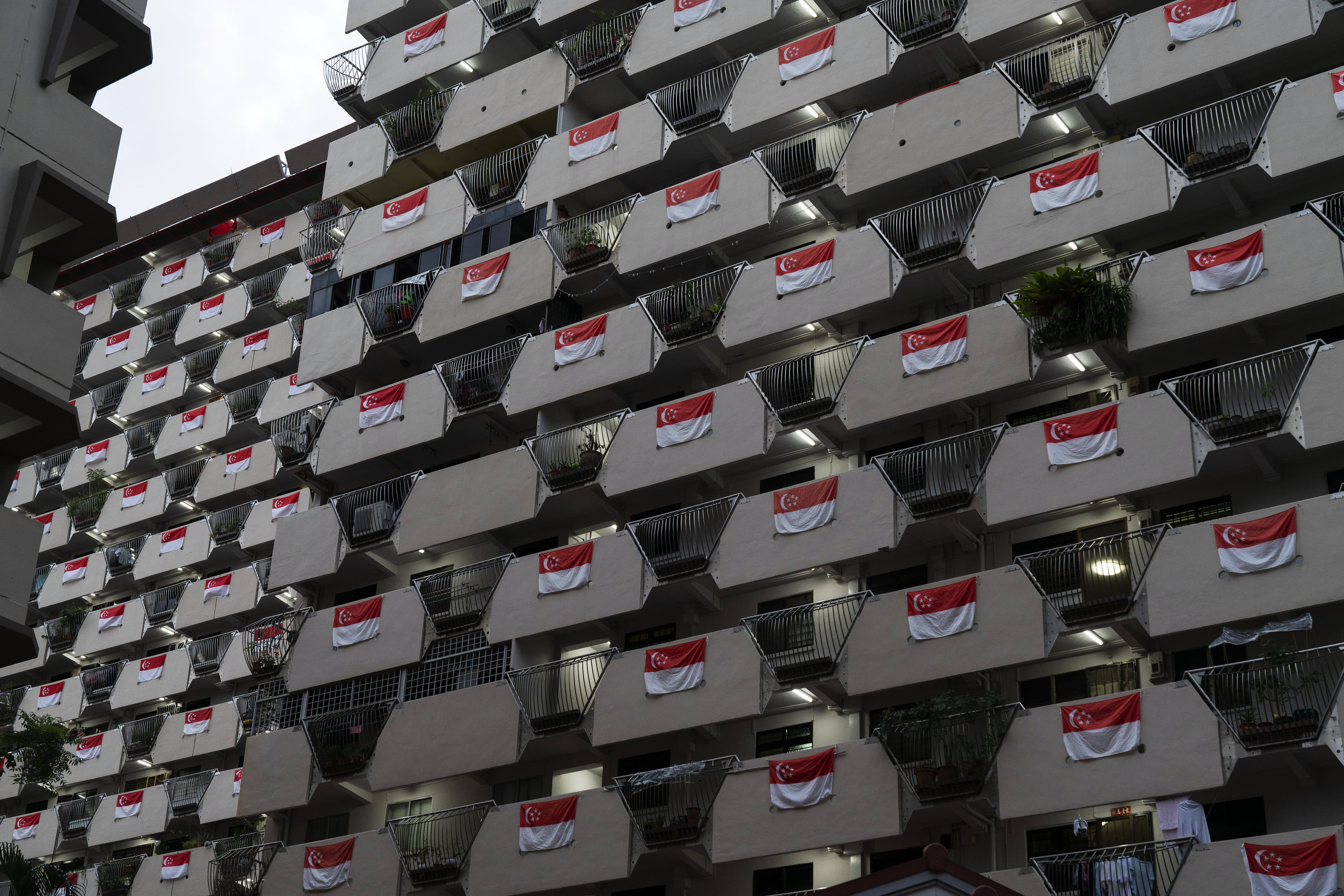
SINGAPORE — Singapore is raising taxes for property purchases amid concerns that surging prices “could run ahead of economic fundamentals.”
In a fresh round of cooling measures announced late Wednesday, the government said both local and foreign buyers of residential properties will now have to pay higher additional buyers’ stamp duties. The changes will take effect from today, the authorities said.
This will be the third round of cooling measures by Singapore following previous similar moves.
Earlier measures taken in December 2021 and September last year had a “moderating effect,” the government said. Still, “property prices showed renewed signs of acceleration amid resilient demand” in the first three months of the year.
“Demand from locals purchasing homes for owner-occupation has been especially strong, and there has also been renewed interest from local and foreign investors in our residential property market,” the Ministry of Finance, National Development Ministry and Monetary Authority of Singapore, said in a joint statement.
“If left unchecked, prices could run ahead of economic fundamentals, with the risk of a sustained increase in prices relative to incomes.”
The biggest jump is the doubling of stamp duties for foreign buyers from 30% to 60%, which will help to “moderate investment demand,” the government said.
The latest measures “were not a surprise,” analysts at Citigroup said in a note, but called the doubling of taxes on foreigners “draconian” given foreign purchases were hovering at just between 5% to 7% in the past 4 quarters.
According to a research report by OrangeTee & Tie last year, Singapore remains a top investment destination among foreign investors.
“Despite the recent interest rate hikes and cooling measures implemented in December 2021, foreign buyers purchased more luxury condos priced at S$5 million [$3.74 million] and above this year,” the report noted.
“Luxury condo purchases by foreigners and Singapore PRs have almost returned to the pre-pandemic levels,” in 2019, it added.
Real estate stocks were the biggest losers in Singapore on Thursday. City Development fell 5.74%, UOL Group dropped 4.9% while Keppel Corp was down 4.4%.
Rate revisions
Singapore said the latest revisions will also help efforts “to ramp up supply, to alleviate the tight housing market for both owner-occupation and rental.”
Both Singapore citizens and permanent residents will also face increases in stamp duties, under the latest measures. But the rate revisions are much smaller.
There will be significant housing supply coming onstream over the next few years…Singapore government
The so-called additional buyer’s stamp duty, or ABSD, will be raised from 17 % to 20% for Singapore citizens buying their second residential property, and from 25% to 30% for those buying their third and subsequent property, the statement said.
For Singapore permanent residents buying their second residential property, the stamp duties will rise from 25% to 30%, and the rates will increase from 30% to 35% for those purchasing their third and subsequent residential property.
High rental prices
The city state has been struggling with sky high residential rental prices.
Since 2021, rents for Housing Board flats surged 38%, while those for private homes jumped 43%, after staying broadly stable in the preceding few years, the MAS said in its biannual macroeconomic review, in April.
Foreign residents living in Singapore have been feeling the pinch as rental prices soared and showed few signs of returning to pre-pandemic levels soon.
The Covid-19 pandemic had led to severe delays across private and public housing projects, the government said in its latest statement.
But added significant progress has been made to “to get back on track.”
“With almost 40,000 public and private residential property completions in 2023, and near 100,000 units expected to be completed from 2023 to 2025, there will be significant housing supply coming onstream over the next few years,” it noted.
However, authorities said Singapore will “continue to adjust our policies as necessary to ensure that they remain relevant, and promote a sustainable property market.”
— CNBC’s Charmaine Jacobs contributed to this report.
Source: CNBC
